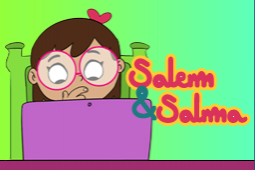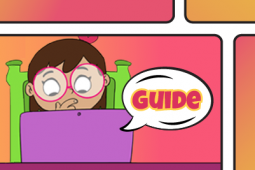I know how I'm supposed to present myself online to avoid any misleading display of my identity.
Sharenting and Sharenthood

What Is Sharenting?
You are sitting in your room and you notice your baby is doing the cutest thing ever and looking utterly adorable. You snap a picture or a video and immediately post it on Instagram and Facebook.
Are you familiar with this scene? It looks normal and innocent! But if you are posting such photos and videos constantly, you might be guilty of sharenting and denial or trivializing the situation is not going to help you.
Sharenting is a term used to describe when parents overuse social media to share content related to their children.
What to Understand about Sharenting?
Social media sharing should be handled on a case-by-case basis since parents develop their own policies around sharing photos, videos and other life updates about their children, and for some, this could mean not posting at all. For others, it could be a matter of giving a child the right to say no before a post is published assuming, of course, they are old enough to understand.
Looking toward the future, I think that as we are all getting more comfortable with social media and the digital world that we are living in, I do think that parents are going to be acting a little bit more cautiously and proactively on what they are posting online. With time, we are learning more on how kids are feeling about the information that has been shared about them; therefore, parents should be better equipped to make smarter sharenting decisions.
For example, before you post that after-shower photo, which is adorable now, think about how your kid will react to it when he gets older.
Even if you do not have any children, you have probably got social media friends who continually post about their kids, their birthdays, their trips taken, their first walk and other events, so you can advise them to more mature about this and share these photos and events with family and close friends only and not on social media.
Sharing few photos on social media seems fairly harmless, but documenting every detail or event of their life can be incredibly dull for your followers and can have more serious consequences, which you can read about in the below section.
What are the Dangers of Sharenting?
- The most important danger is breaching the right of your child’s privacy by revealing his/her life on social media, while he/she still has no say in it, instead of protecting his/her rights.
- Neglecting your social network’s privacy settings and allowing strangers to scroll through your Facebook feed and find out your child’s name, school, birthday and friends. Would you share this information with a stranger on the street? Of course not, but you might be unwittingly sharing this with a predator online.
- Parents cannot notice time perception. It is okay to post when they are babies but when they grow old and see that picture of them with a jokey caption & funny expression, this can be used for embarrassment, hurt and bullying from other children. Online reputation: When you post about your child, you are shaping their online reputation. When children get older and head out into the world of employment and education, what you have shared could affect their future prospects.
Don’t worry! We have several tips for parents on how to handle sharenting:
- Check and work on the privacy settings: Control who can see your posts and make sure they are not public. if you are using Instagram, consider making your account private.
- Think before sharing and be mindful of your online actions: If you have any doubt of the following, it is better not to share: Will this embarrass my child when he/she get older? Could other people laugh at him/her? Could this comment be misconstrued?
- Build a family agreement: Take approval from your child when he/she is older and more mature, ask him/her if it is okay with him/her that you share a picture of him/her, and set rules about what to post.
- Ultimately, the best way to protect your child online is not to share photos and posts about them.
Just when you thought you knew it all, are you familiar about the term “commercial sharenter”?
Have you ever watched YouTube videos or posts about parents with high number of subscribers or followers where they turn one’s family into a content occasionally leading to somewhere dark?
For example, parents share posts of them slapping their children, yelling at their kids, telling them that they were being put up for adoption, or breaking their toys! Yes, they make it look like it is a prank and yes, they do have their children's consent, but this is not enough.
The territory of the “commercial sharenter” is about the ethical dimensions of putting your kids on the Internet for whom feeling sorrow or sympathy becomes a kind of currency to attract a big audience.
Remember that no matter what you do as a parent, the moment you post that version of them bawling, pleading, or what other shameful behavior will remain on the Internet frozen in time.
Seeing shameless sharenter with commercial instincts putting their lives and children’s lives at risk of many cyber threats, “Sharenthood” makes us aware of the importance of the privacy of our lives and our children’s lives.
In conclusion, “Sharenthood” did not resolve anything for us, on the contrary, its disadvantages are more and riskier than we thought. My advice to you is to “make more mindful choices” about your digital lives, even if parenthood is very complicated, we should know better for our own children’s sake.
@2x.png)






















